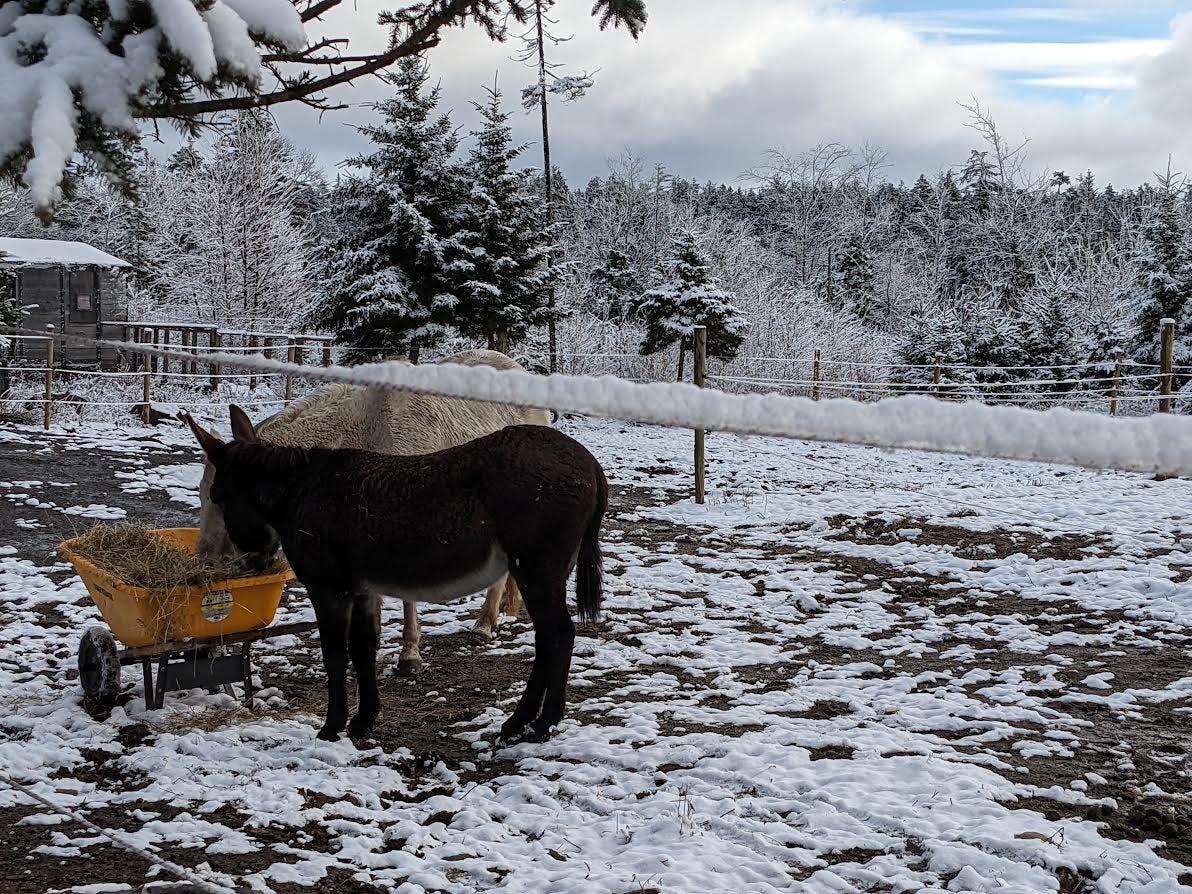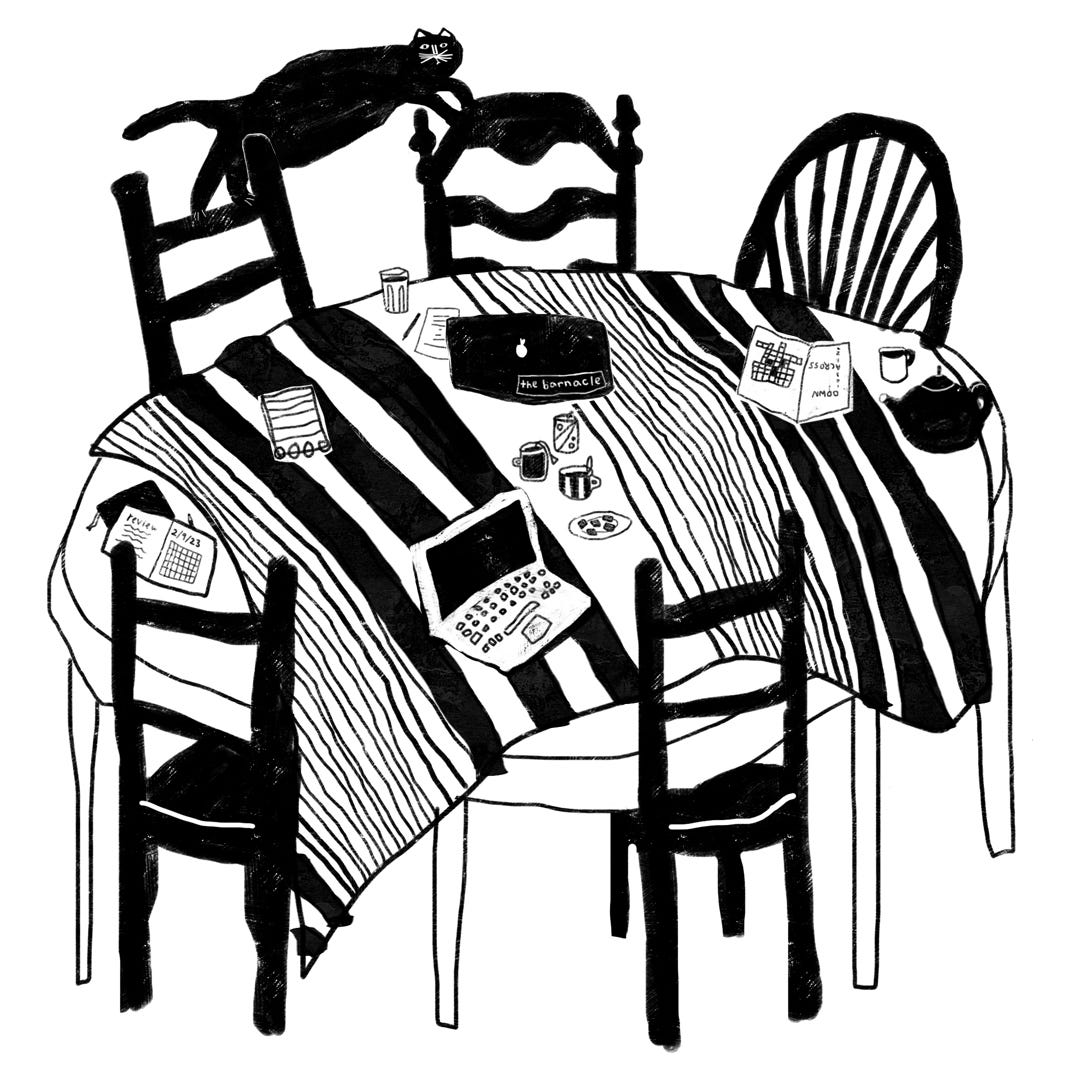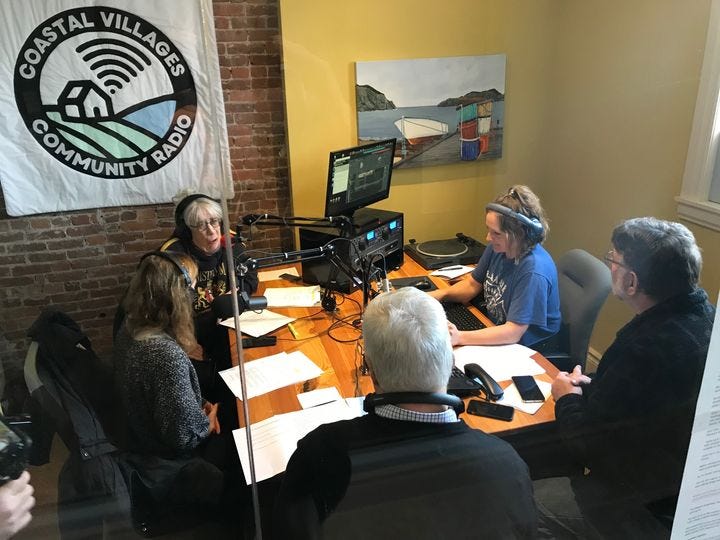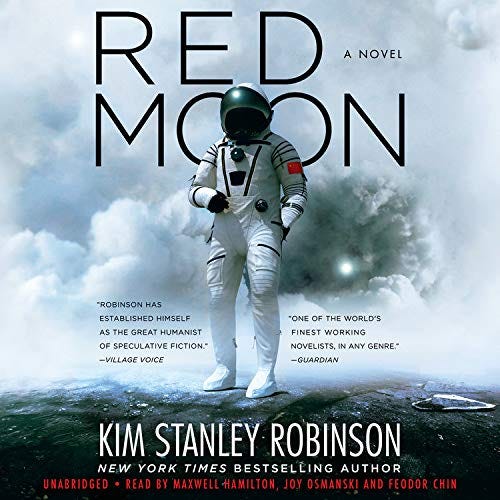A Little slice of paradise
Sally and Cole tuck into their feed.
The other day, watching my wife head up to the barn with two buckets of water for the horses, with three dogs trailing her in the later winter sun, it occurred to me that what a friend had told me was true: We are living in our little slice of paradise.
Here, surrounded by trees with the brook running out back, the birds overhead, we are insulated from the troubles of the world. It’s a peaceful place, and a powerful feeling.
That doesn’t mean I’ve turned my back on the world. Far from it. I still take in an enormous amount of news - local, regional, national and global - daily, and am keenly aware of the outside troubles. The earthquake in Turkey and Syria; the Ukrainian-Russia war. The anti-democratic forces in Washington heckling President Biden during his State of the Union Speech; the post-Trump posturing of alleged con man and liar, George Santos, and so much more. It’s all disquieting.
Another reader expressed to me that reading this newsletter is grounding. That’s because the experience of living here is grounding. I step outside with my Border Collie, Farley, and we set up off the lane. It’s more than two kilometres out to the main road from our place.
We walk at a brisk pace along the tawny lane splotched here and there with patches of old, grey ice. Trees surround us on either side. It’s a quiet solitude. Nothing breaks the silence but for the wind pestering the tree tops.
Maybe more people should live off-grid. Perhaps more people should get grounded. Maybe there’d be less strife in the world. It’s a dream, a nice dream, but one nonetheless.
The question is how to make that happen, and I don’t see any easy answers. But right now I believe that if even more people had access to more nature, we’d all be better off and happier for it.
I’m far from alone in that particular thesis. In Douglas Brinkley’s inspiring book Silent Spring Revolution he quotes the great nature philosopher Henry David Theroux, who opined: “Heaven is under our feet as well as our our heads.”
I wish everyone could live in their own little slices of paradise.
Some housekeeping
So the last couple of posts a number of people “pledged” money, which I found confusing. My intent is to keep this newsletter free for the time to come.
For those of you who aren’t familiar with Substack, it differs from some other blogging platforms such as Wordpress, in that it allows writers - if they wish - to convert their audiences to paid.
So when the pledges started showing up, I wasn’t certain what was going on. As it turns out, it relates back to a Substack update that automatically turned on that feature (which I have since turned off).
The idea is that your readers can show their support by promising or pledging an amount of money they’d be willing to pay in the future to read the newsletter if and when it goes to paid.
I’m not keen on the idea. It confused not only me, but several of my readers. My apologies for any resultant confusion.
Again, Tales From Beyond the Grid is free.
Read on, my friends.
What’s local
One of the things I’ve been meaning to do is to expand this newsletter so it covers more local happenings around where I live. It interests me. I hope it may interest some of my local readers, and as well create a broader portrait of where I live, and the sorts of local amenities available even though we live off-grid. The latter doesn’t mean shuttering ones-self away from society.
Some enterprising types of launched an alternative publication for the area. Calling itself the Lunenburg Barnacle - I guess they hope the news reading habit will stick; get it! - it’s a quirky, modest effort to start. Nothing wrong with that.
Illustration courtesy of the Lunenburg Barnacle.
It features a couple of “news” stories - I add quotes because of the editorializing mixed into the latter, a smattering of local listings, some arts reporting, and - strangely - a number of puzzles.
Still, it’s refreshing to see someone try and offer an alternative to the local media that purports to cover the South Shore, as well as to the larger outlets such as the CBC.
And a new radio station
As if it’s not enough the South Shore has a new publication, this weekend also saw the launch of a new community radio station. Coastal Villages Community Radio is starting with broadcasts every Saturday and encore broadcasts in between.
The station bills itself as a new way to keep in touch with what’s going on along the South Shore of Nova Scotia, and is owned and operated by the Coastal Villages Community Radio Society. It is promising to provide information about issues affecting South Shore communities as well as keeping people up-to-date on social and cultural events.
The station also says it will train on-air community broadcast volunteers so that it’s programming reflects local grassroots issues.
The board of directors is experienced, and includes the former president of a successful community radio station in Tampa, Florida; a former CKBW news reporter; and the executive director of the MFA in Creative Nonfiction at the School of Journalism, University of King’s College; not to mention a former CBC broadcaster who was the co-creator and first host of Brave New Waves; among others.
Right now programming includes All Things Food, interviews and conversations, and music.
“A moment in local history. A picture of the first five minutes of live CVCR radio. Photo courtesy of CVCR.
This looks like an exciting, worthwhile initiative, and again points to the South Shore community’s desire to reflect itself, and its lack of patience with the media currently serving the area.
What I’m reading:
Red Moon by Kim Stanley Robinson places an American on his first trip to the moon, where he is helping the Chinese Lunar Authority with a communications system. But naive traveller Fred Fredericks hardly arrives in space when he is embroiled in murder and a political scandal.
Author of more than 20 books, Robinson’s honours in the sci-fi realm include winning the Hugo, Nebula and Locus Awards. An authority no less than the New Yorker ran a story on Robinson in 2013 titled: “Our greatest political novelist?” Outside of that, he is also an ardent environmentalist who has written a massive, obsessive book on the Sierra Mountain Range titled The High Sierra: A Love Story, and whom Time Magazine has named a Hero of the Environment.
In 2016 he was given the Heinlein Award for lifetime achievement in science fiction, and asteroid 72432 was named “Kimrobinson.” In 2017 he was given the Arthur C. Clarke Award for Imagination in Service to Society. Robinson is a sharp, witty commentator adept at shifting our perspective of the world into a plausible if not always comfortable future.
What I’m listening to:
Guitarist Michael Occhipinti’s tribute, The Universe of John Lennon: Shine On, is an ambitious jazz/funk/pop album that takes the Beatle’s compositions and turns them into joyous jams. Songs include I am the Walrus, Working Class Hero, Tomorrow Never Knows, and Whatever Gets You Through the Night - and in answer to that last song, pieces such as that one.






Kim Robinson is a treasure. Always a great read.
All the above, interesting!